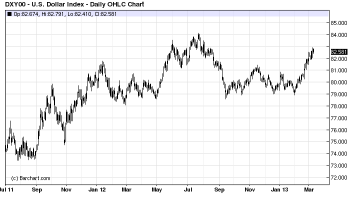The United States is currently undergoing a cutback in government spending called sequestration. This came about as a result of a bill that was signed into law in 2011 due to the last debt ceiling issue. It is not yet known just how severe these budget cuts will be.
What is known is that persons who had nothing to do with either sequestration or the debt ceiling will be furloughed; perhaps permanently.
The United States has not had a balanced budget for years. Typically when a debt ceiling is reached, the US Congress votes to raise it, thus increasing borrowing capacity. Usually this unto itself is not a major problem, unless one political party decides to make it a problem. The US is unique in that here we have a two party system. Other countries may have many political parties and when a clear winner is not voted upon, a coalition government is formed. That is not the case in the US. The US has a winner take all mentality. Truth be told we really need a third political party to balance the extremes of the two we have. But again, that is not the case.
The root cause of this problem came about as a result of the financial meltdown of 2008. By 2009 the US economy was in a freefall. The prior autumn Congress passed the TARP bill to lend stability to the banks and financial markets. The financial meltdown turned into the Great Recession as Wall Street’s troubles quickly spread into the general economy. In 2009 the Unemployment rate stood at 10.1% which for the United States was unheard of in recent times. So in 2009 Congress passed the Economic Stimulus Act which pumped about 787 Billion dollars into the economy. This was mainly used to keep policemen, firefighters and teachers employed. It did absolutely nothing for Main Street America. From that time to the present the United States has not had an agreed upon budget that both political parties will approve.
At the end of 2012 the United States briefly hit a fiscal cliff whereby funding for many programs would be cutoff. The US Congress acted swiftly to avoid that dilemma, however at the same time it was discovered that then Secretary of the Treasury Geithner maneuvered some funds and payables to keep the United States solvent until the early May timeframe. This timeframe is the deadline for the debt ceiling. On February 15th President Obama extended the timeframe for Congress to come up with a balanced budget and gave them 60 days to do so. By April 15th if Congress does not agree then all members of Congress will forego their pay. An interesting solution to an interesting problem.
The question remains if Congress cannot agree on a budget and if the debt ceiling is hit, what impact will that have on the Global Economy? If we can use history as a guideline, then in all likelihood the following will occur:
– The rating of US Government debt will probably be reduced from AA (where it is now) to AA-
– This will not lend confidence worldwide in the US’s ability to repay loans.
– The Chinese may decide to cut off funding any further US debt.
– The value of the USD will probably shrink and other currencies will rise.
The above graph (click to enlarge) shows where the USD stood at the height of the last debt ceiling crisis. At that point it was hovering around the 73-74 range. That was a crisis that was resolved quickly, the question is will the upcoming battle be as swift? Ironically enough the value of US Government Bonds hit a peak at that time in the 150 plus range for the 30 year bond. The reason was because most investors in the United States were terrified of the stock market and decided to move to the “safety” of bonds. This is typical but the yields on bonds shrank to an all time low.
If this situation occurs for an extended period of time, we could see deflation as the value and purchasing power of the USD will shrink over time. I don’t recall a time when the US economy ever experienced a deflationary period liken to what Japan went thru in the 1990’s and it’s anyone guess as to what the FOMC will do.
From Wall Street’s perspective, they’re treating this as if it’s a famine in China, in other words so far removed that it couldn’t possibly affect them. During the debt ceiling crisis the market did not follow fundamentals and the same aspect is occurring now. Look at what happened this past week in the markets when the USD cracked the 83 mark and was going higher. The markets went higher as well. It’s as if all fundamentals are being ignored. I suspect this will change however if we start to receive bad economic reports. The danger to a trader is if Wall Street does this and you’re in the wrong trade at the wrong time, this could be very painful.

